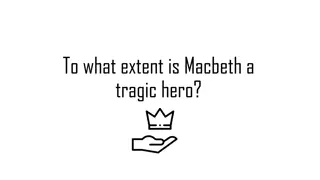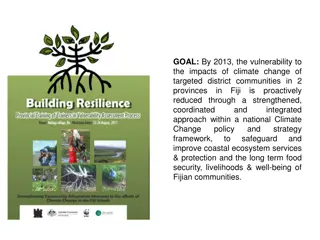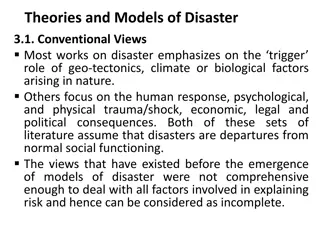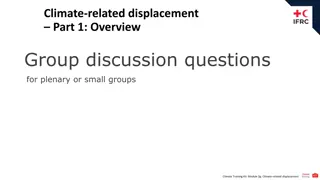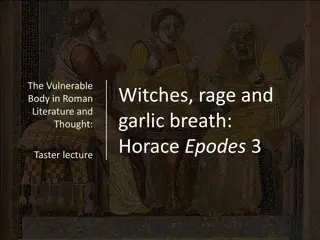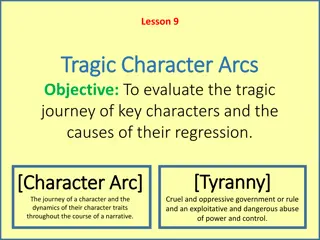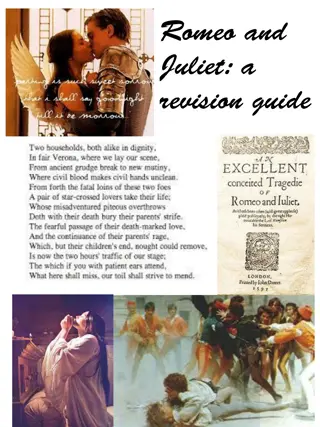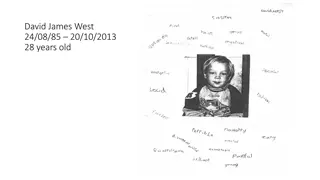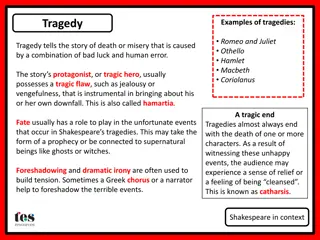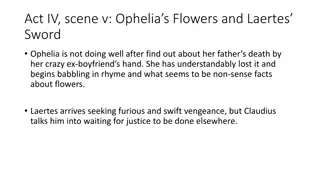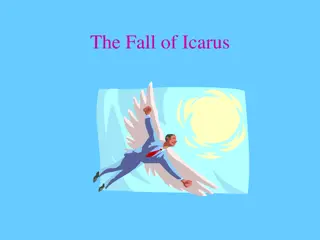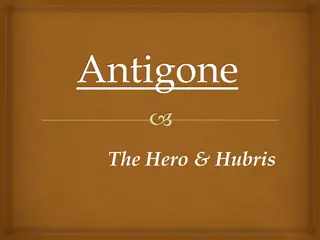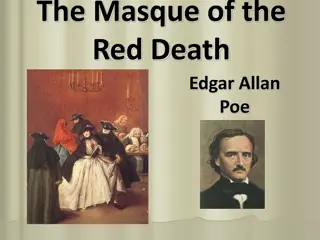The Tragic Theme of Vulnerability in Seneca's Thyestes
Seneca's play Thyestes explores the theme of tragic vulnerability through the characters of Atreus and Thyestes. Atreus's quest for power and control is challenged by his own vulnerabilities, while Thyestes experiences a grotesque punishment that highlights the limitations of male generative power. The play delves into the paradox of male strength and the appropriation of female reproductive power, reflecting on themes of shame, power dynamics, and the fragile nature of patriarchal authority.
Download Presentation

Please find below an Image/Link to download the presentation.
The content on the website is provided AS IS for your information and personal use only. It may not be sold, licensed, or shared on other websites without obtaining consent from the author. Download presentation by click this link. If you encounter any issues during the download, it is possible that the publisher has removed the file from their server.
E N D
Presentation Transcript
Beyond tragic vulnerability: Seneca Thyestes (II) The Vulnerable Body Term 2, lecture 5
Atreus will never be the monstrous, self-sufficient Stoic he wants to be, because the problem of paternity and desire has not been resolved. His relationship with Aerope gives the lie to his male independence and invulnerability. The battle for invulnerability: a zero-sum Aerope s unpolicable sexual behaviour and emotions, and therefore Atreus fragile and contingent patriarchal authority, rumble beneath the surface of the play. game?
The punishment of Thyestes makes grotesquely clear that men do not possess the generative power that women do. Thyestes may be doubled over with labour pains , yet there will be no birth, only the still-birth of dismembered bodies (via the two orifices that again remind Thyestes that he does not have the reproductive organs of a woman). The sterile male body The male body in the play is sterile, death-like. There will be no revelation in birth, no emerging from the darkness of the body s interior into the light of day. Even that process, which is also the basic mechanism of tragedy, is confounded.
Terrible avenger The origin of life Creative genius Passive earth Shame WOMAN Atreus, in order to be all powerful, faces a paradox. He must both NOT be a woman and appropriate/parody a female power to control reproduction and birth.
Eructat (Thy.911)
Meltzer, Dark wit and black humor in Senecas Thyestes (p314): The contrast between 'civilized' luxury and barbaric crudeness is clear. Atreus describes a gleeful, drunken Thyestes burping contentedly as he reclines, barely able to keep his head up. Eructat, placed at the beginning of line 911, has a powerful impact. Thyestes belch lifts Atreus into the throes of exaltation as he rejoices in his victory. The soaring emotion of his exclamation, o me caelitum excelsissimum contrasts the preceding sentence, eructat. At the beginning of the speech Atreus joyfully claimed that he walked with his head level with the stars (885-6). Thyestes burp makes Atreus apotheosis complete.
George Platt Lynes 1939 (The second birth of Dionysus), at The Met












